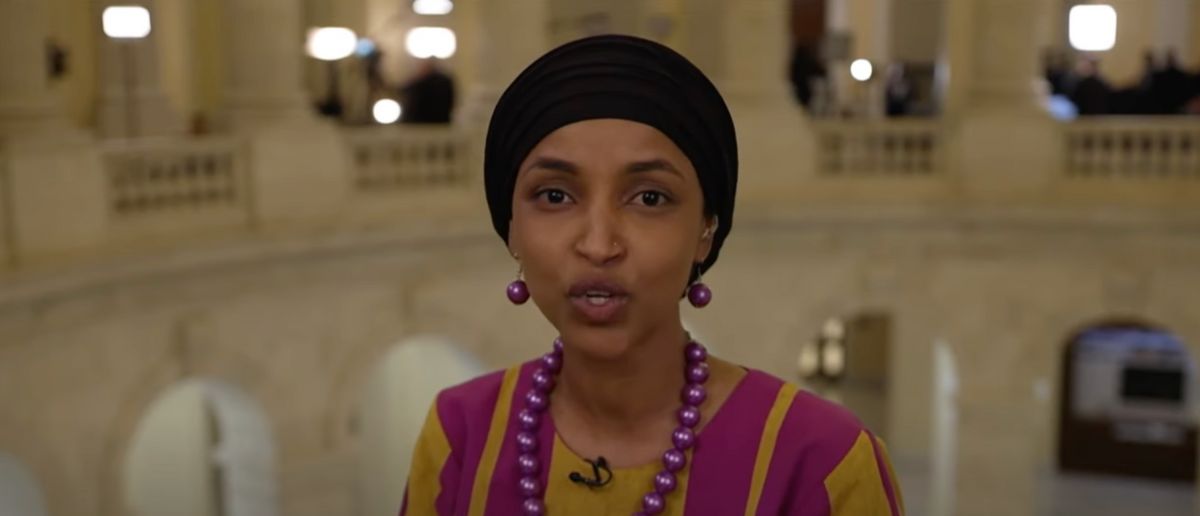
The highest court in the land shouldn’t be dramatic. But that’s just where we are now.
Because the Supreme Court descended into chaos after one Justice started firing shots.
Justice Amy Coney Barrett, a rock-solid Trump appointee, took a well-deserved swipe at Justice Ketanji Brown Jackson during a September 4, appearance at Manhattan’s Lincoln Center, defending her sharp rebuke in a recent Supreme Court ruling on universal injunctions. Speaking to a packed auditorium to promote her book Listening to the Law, Barrett stood by her June 2025 majority opinion in Trump v. CASA, which curbed lower courts’ ability to issue sweeping injunctions against President Trump’s policies.
When asked by The Free Press’ Bari Weiss about her pointed words for Jackson, Barrett said, “I thought Justice Jackson had made an argument in strong terms that I thought warranted a response,” proving she’s not afraid to confront judicial overreach. Barrett’s jab was spot-on—Jackson’s dissent pushed an activist agenda that threatens the Constitution and Trump’s America First mission.
Barrett, a New Orleans native with a knack for precision, explained her approach: “I personally tend not to be spicy for the sake of being spicy, but I am from New Orleans and everyone likes a little Tabasco sometimes.” Her critique of Jackson wasn’t personal but a necessary pushback against a dangerous view of judicial power.
In the Trump v. CASA ruling, Barrett accused Jackson of endorsing an “imperial judiciary,” a charge that hits the mark given Jackson’s track record of prioritizing ideology over law. Barrett’s words, rooted in principle, echo the late Justice Antonin Scalia, for whom she clerked: “I attack ideas. I don’t attack people.” Jackson’s ideas, however, deserve the heat.
Universal injunctions, the focus of Trump v. CASA, have become a weapon for activist judges to block Trump’s agenda, from border security to economic reforms. These sweeping orders, often issued by lower courts, halt entire policies nationwide, undermining the will of voters who elected Trump. Barrett’s majority opinion reined in this abuse, ensuring judges can’t play dictator from the bench. Jackson’s dissent, however, defended this unchecked power, arguing for a judiciary that can override the executive branch at will. Barrett rightly called this out, telling the audience not to “dwell” on Jackson’s flawed reasoning.
Jackson’s judicial philosophy, evident in her Trump v. CASA dissent, leans heavily on progressive activism, prioritizing outcomes over constitutional limits. Appointed by Biden in 2022, she’s consistently pushed expansive interpretations of judicial authority, often aligning with the Left’s agenda to thwart Trump’s policies. Her dissent in Trump v. CASA suggested courts should have near-unlimited power to issue injunctions, a stance that would paralyze the executive branch and erode the separation of powers. Barrett’s sharp rebuke was warranted—Jackson’s vision empowers unelected judges to govern, a direct threat to the republic.
Cruz’s defense of constitutional principles aligns with Barrett’s stand. Jackson’s approach mirrors the Left’s broader push to weaponize institutions against Trump’s America First agenda.
From sanctuary city rulings to environmental overreach, activist judges have used universal injunctions to stall policies backed by millions. Jackson’s dissent in Trump v. CASA fits this pattern, advocating for a judiciary that acts as a super-legislature. Barrett’s Tabasco-laced response was a necessary check on this power grab.’
The Supreme Court’s emergency docket, where Trump v. CASA landed, has become a battleground for these fights. Lower courts, often packed with liberal appointees, issue injunctions to block Trump’s policies, only for the Supreme Court to overturn them. Jackson’s defense of this practice shows she’s more interested in judicial supremacy than constitutional balance. Barrett, a steadfast originalist, rightly called her out for promoting an “imperial judiciary” that undermines the will of the people.
Jackson’s track record justifies Barrett’s jabs. In cases like Biden v. Missouri (2022), she backed expansive federal power over states, showing a willingness to stretch judicial authority.
Her Trump v. CASA dissent continues this trend, arguing for courts to override elected officials without clear constitutional grounding. This activism, cloaked in legal jargon, threatens the democratic process Trump champions. Barrett’s firm response defends the Constitution’s limits, ensuring judges don’t become kings.
At the Lincoln Center, Barrett showed her wit, describing Jackson as “actor, Broadway” in a lightning-round question about her colleagues. The jab, while lighthearted, hints at Jackson’s performative style—more about grandstanding than grounding rulings in law. Barrett’s respect for her colleague, as she noted, “We just disagreed about the scope of judicial power,” doesn’t soften the truth: Jackson’s ideas are dangerous, and Barrett was right to confront them.
The Left’s love for universal injunctions stems from their desperation to stop Trump. Since 2017, activist judges have targeted his policies—travel bans, border wall funding, deregulation—with nationwide blocks, often from single district courts. Jackson’s dissent in Trump v. CASA defends this tactic, giving unelected judges veto power over a president elected by millions. Barrett’s ruling, backed by Cruz’s principles, restores balance, ensuring the executive branch can function.
Jackson’s approach risks turning the judiciary into a political weapon. Her dissent aligns with progressive efforts to use courts as a check on Trump, regardless of constitutional limits. X posts like @PatriotTruthUSA on August 10, note how liberal judges “twist the law to block MAGA policies.”
Barrett’s opinion, by contrast, keeps the judiciary in its lane, protecting the separation of powers Cruz champions.
Cruz’s broader fight against judicial overreach mirrors Barrett’s stand. His defense of nominees like Riley Barnes, who affirm God-given rights, shows his commitment to a judiciary that respects the Constitution. Jackson’s activism, by contrast, fuels a system where judges act as policymakers, a trend Barrett rightly rejected. Jackson deserves the jabs for pushing a vision that undermines democracy.
The Trump v. CASA ruling is a win for patriots who want a government accountable to voters, not judges. Barrett’s leadership, like Cruz’s, ensures the judiciary doesn’t override the people’s will. Jackson’s dissent, rooted in leftist ideology, would empower courts to dictate policy, a path to tyranny. Barrett’s sharp words were necessary to keep her in check.
Jackson’s Broadway-style activism has no place in a constitutional republic. Her defense of universal injunctions shows a willingness to let judges rule over elected leaders, a stance that clashes with America’s founding.





